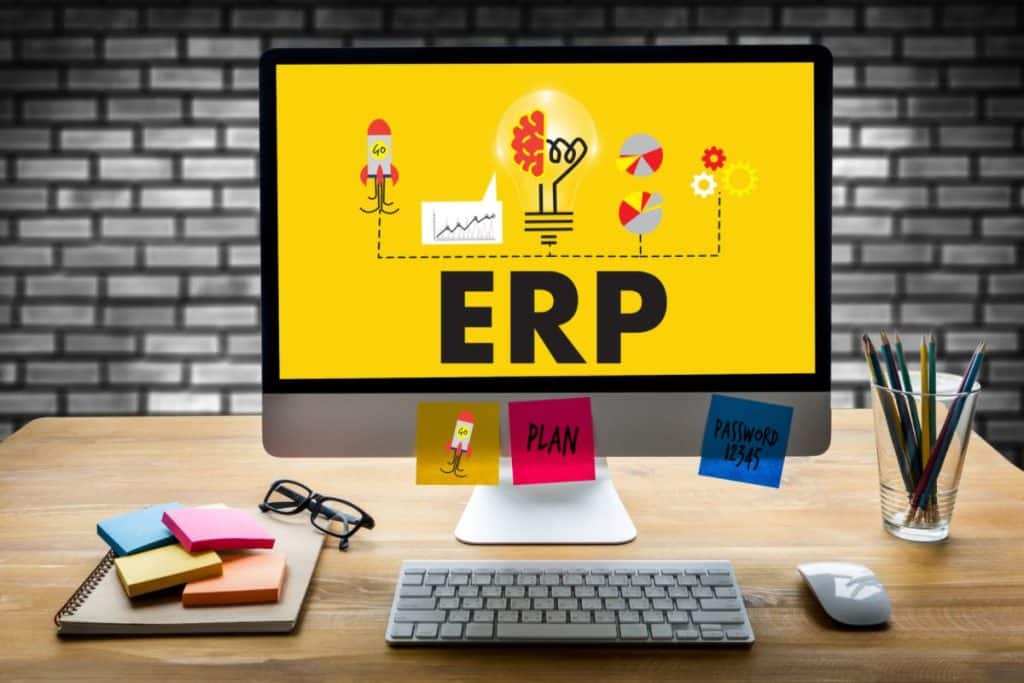These days, when considering an ERP (enterprise resource planning) software solution, there are many options on the market. Generic ERP solutions that require customization being replaced by cloud-based options specific to each industry is a primary reason.
From agriculture to banking to entertainment to transportation, you will find that there are now solutions specific to industry verticals. Additionally, there are more options on the market in general.
Therefore, choosing the right solution can be challenging. System integration, configuration, and feature set add complexity to this decision. Unfortunately, there’s no specific answer, and there’s no magic formula for finding the right cloud ERP software. However, some best practices can help you decide.
5 Best Practices to Find the Right Cloud ERP Software
Below, we’ll discuss the five best practices for finding the right cloud ERP software for your business.
Determine Specific Industry Needs
When choosing an ERP solution, you should make sure that it fits your specific business process needs, as well as your vertical industry needs. If not, your employees may avoid adopting it even after it rolls out [and they are trained on it]. They may backslide into relying on spreadsheets and other unsanctioned solutions instead. Eek!
It’s critical to take the time to evaluate your business before you get started searching for an ERP solution. Defining the structure and operation of the company, assessing the current software situation, and evaluating needs regarding integration and customization are essential. Additionally, you’ll want to take the time to determine your goals and any desired improvements.
Ask yourself the following:
- Who will be responsible for choosing the system?
- Who will be using the system?
- What features are required?
- How much of a budget commitment?
- What is the timeline to implement it?
By taking the time to do a thorough assessment, you can hone in on the ideal industry-specific solution.
Consult with Stakeholders and Team Members
As you take the time to evaluate the needs of your business, you’ll be relying on your stakeholders and key employees who will be using the system. Ensure to consult with those staff members who know what your business needs in an ERP solution.
The consultation process will help reveal your business needs, creating a connection between the old and new systems.
These consultive conversations will provide your team with a sense of ownership with the update as a bonus. Since they are involved in the new system’s rollout, they will be more likely to accept it over the old ways of doing things.
Assess Whether the System Can Grow with You
Since your ERP system is the epicenter of your business, the one that you choose should be with you well into the future. Ideally, your business isn’t going to sit stagnantly, which means your system doesn’t need to either. The system that you choose needs to adapt and evolve with your company.
A cloud-based ERP system will be continuously and automatically updated, which will help with adaptability. However, you will also want to consider the flexibility of the system. Determine whether it can scale or support multiple ways of dealing with the same business function.
As you are considering all of your options, you’ll also want to keep in mind that the system’s vendor needs to have staying power as well. One of the disadvantages of the myriad ERP options is finding a vendor that will not help you with integrations now or in the future.
Take Note of Required Third-Party Integrations
An ERP solution works best when it connects with other systems. If not, its use as a central nervous system for your business doesn’t work correctly. The ERP system you select needs to include required integrations and connectivity—or at least be ready for integration with the help of a partner.
The best ERP integration solution for your company depends on your business, your current system, and your budget. There are several options.
A point-to-point integration connects ERP software with other software/tools. At the same time, a customized application/adapter is designed specifically for the needs of your business and the integration of business tools.
Finally, Enterprise Service Buses (ESB) is an option worth exploring to connect to apps through an intermediary communication tool.
Of course, whatever you choose, you’ll want to be sure that you have the support necessary for guidance through the integration process.
Pay Attention to Product Support
Regardless of how much info you gather on implementing and optimizing an ERP solution, you will need help from a partner, whether that comes from the vendor or a third party. If you don’t, you may end up adopting a system with lots of great features and capabilities that you never get to configure and use.
The right partner will help you evolve the processes/systems of your business, leverage your internal resources, and capitalize on your new system. Keeping this in mind, you want to choose a vendor that you can work well with now and in the future.
Pay attention to the community of customizers, integrators, consultants, and support for your ERP solution—the help that will ensure you get the most from your investment.
Conclusion
There are many options on the market when it comes to ERP software. You may find yourself overwhelmed as you go through them. Of course, if you keep these best practices in mind, you’ll find the decision process less daunting.
If you need a hand identifying the best solution for your business, Contact Us today!



